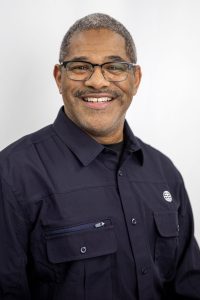David Kowalick—Year B Propers 17-21
Welcome to the Gospel Reverb podcast. Gospel Reverb is an audio gathering for preachers, teachers, and Bible thrill seekers. Each month, our host, Anthony Mullins, will interview a new guest to gain insights and preaching nuggets mined from select passages of Scripture in that month’s Revised Common Lectionary.
The podcast’s passion is to proclaim and boast in Jesus Christ, the one who reveals the heart of God, Father, Son, and Holy Spirit. And now onto the episode.
Anthony: Hello, friends, and welcome to the latest episode of Gospel Reverb. Gospel Reverb is a podcast devoted to bringing you insights from Scripture, found in the Revised Common Lectionary, and sharing commentary from a Christ centered and Trinitarian view.
I’m your host, Anthony Mullins, and it’s my joy to welcome our guest, David Kowalick. David is the founder and director of Godwit Ministries in Australia. Godwit is a resourcing ministry designed to equip church pastors and leaders in regions where theological training and resources are scarce. He is an ordained minister with over 30 years of full-time ministry experience in church, mission, and Bible college contexts.
David is married to Catherine, and they have four adult children. And if you’d like more information on Godwit and David himself, you can visit their ministry website, godwit.com.au.
David, thanks for being with us and welcome to the podcast. And since this is your first time on Gospel Reverb, we’d like to know you a little bit of your personal story and how you are joining with Jesus these days.
David: It’s good to be on your podcast and thanks for having me. It’s always a pleasure to share the gospel with anyone and everyone, which is one of our slogans of Godwit Ministries, is to share the gospel with anyone, anywhere, and everywhere, so we don’t want to limit it.
And technology, of course, makes that a lot more possible. So, it’s great that we’re able to talk from other sides of the world and still talk about the gospel in real time.
Anthony: Yeah, absolutely. And Godwit, it sounds like you’re taking resources to places where maybe those resources aren’t readily available.
Can you tell us a little bit more about the ministry?
[00:02:30] David: Yeah, sure. So, I’ve been involved in church ministry, pastoral ministry for a number of years, and I had this sense — it was almost a miraculous call, where I was told through a number of different methods that I felt the Holy Spirit was leading me to take every opportunity to share the gospel that came my way. And if someone, even someone from a place where they had no money, and there’s no way that it could be done, just to say yes anyway, and that the resources would be there to make it happen. And that’s exactly what did happen.
My first invitation was to a place in Papua New Guinea, which is a country near Australia. And there was a young pastor there who was really struggling, and they’d been doing some study here in Australia. And he said, “Look, we really need to get more Bible teaching up in our area. Would you be willing to come?”
And at the time, I thought, you’ve got no money and I’ve got no money. So be warm and fed. And that’s it; we’ll just leave it there. But then I had that nudge, that sense, no, just say yes and see what happens. So, I said, sure, I’ll come. That sounds like a plan.
And then, sure enough within days people just came and said, “I was led by the Spirit to give you this money towards something that’s coming up. I don’t know what it is, but I know that I’m meant to give it to you.” And it was the exact right amount of money to cover the costs of going there and doing a pastor’s conference over a period of a couple of weeks.
And it just snowballed from there. And so, every year, I was going up to Papua New Guinea or to Fiji, Indonesia, Sri Lanka, and India. But India and Papua New Guinea have been the main places I’ve been visiting over the years. India, I’ve been to 11 times, and it’s been a really fruitful ministry.
It’s mainly aimed at Bible teaching with a Trinitarian view, with a grace orientation to a lot of these guys who are brilliant leaders. They’re way better leaders than I’ll ever be; they’re leading large thriving churches. But a lot of them say they’re struggling with preaching every Sunday because, to be honest, they would say, I don’t have the theological input that I felt that I needed.
Some of them have only had two or three months of Bible college. That’s all they could afford, all that was available, and the quality wasn’t really that good. And so, they knew that they were struggling, and so they really would take a hold of anything you had to give them, and they would run a thousand miles with it.
And the other thing that you notice when you’re in these places is that people will crawl across cut glass to hear the gospel. And when you’re in a place like Australia, and I know it’s probably like this in many parts of the United States as well, that people become a little bit blasé about the things of God and good Bible teaching, and they take it all for granted.
And sometimes you can feel like a soufflé chef, curating these beautiful little pieces of cuisine for people to eat, and they don’t even bother with it. And yet you go to a place like India, and they will take every word you say and will hang off every word. And then they will take that back to their villages, to their towns, and they will disseminate every single piece of that.
And they’ve even said to me many times, I’ve taken every single thing that you’ve said, I’ve written it down, I’m going to preach that same message precisely to my church. And that’s not seen as a bad thing, that’s seen as a compliment. So that’s it’s just a different world and it’s quite an amazing experience to see that sort of thing.
[00:06:35] Anthony: Praise God. We were chatting prior to starting the recording and just thanking you for your active participation in Jesus’s ministry. And just hearing more of the backstory, you saying yes to that nudging of the Spirit, stepping out on faith, not kind of. It was like you said, like, how is this going to come together?
And yet God provides, he is so generous. And so again, thank you for saying yes. And we will be praying, ongoing, for Godwit and your participation in it. It’s exciting what you’re doing. And you’re right — may we not become blasé to the glorious good news of our Lord Jesus Christ.
So, let’s talk about Jesus and the word of God being made manifest here on this podcast. We’re going to look at this month’s lectionary passages, and we’re going to pivot now to our first passage of the month. It’s James 1: 17-27. I’ll be reading from the New Revised Standard Version, the updated edition. It’s the Revised Common Lectionary Passage for Proper 17 in Ordinary Time, which is September the 1.
Every generous act of giving, with every perfect gift, is from above, coming down from the Father of lights, with whom there is no variation or shadow due to change. 18 In fulfillment of his own purpose he gave birth to us by the word of truth, so that we would become a kind of first fruits of his creatures. 19 You must understand this, my beloved brothers and sisters: let everyone be quick to listen, slow to speak, slow to anger, 20 for human anger does not produce God’s righteousness. 21 Therefore rid yourselves of all sordidness and rank growth of wickedness, and welcome with meekness the implanted word that has the power to save your souls. 22 But be doers of the word and not merely hearers who deceive themselves. 23 For if any are hearers of the word and not doers, they are like those who look at themselves in a mirror; 24 for they look at themselves and, on going away, immediately forget what they were like. 25 But those who look into the perfect law, the law of liberty, and persevere, being not hearers who forget but doers who act—they will be blessed in their doing. 26 If any think they are religious and do not bridle their tongues but deceive their hearts, their religion is worthless. 27 Religion that is pure and undefiled before God the Father is this: to care for orphans and widows in their distress and to keep oneself unstained by the world.
David, I’d be grateful if you would tell us about the good news that is shoehorned into verses 17 and 18 to start this passage, and what are the theological implications of what is said there?
[00:09:26] David: Yeah, James is one of those controversial books. It was Luther who said that it was a book of straw. I know that’s taken a little bit out of context because he still believed that it was meant to be in the scriptures, but he saw it as being not perhaps a top-shelf letter compared to some of the other letters.
And that makes perfect sense coming from his particular point of view and his background. He was so overwhelmed by the grace of God that it blinded him to everything else, I think.
And I think, sometimes I look at the church today, and I see that there are a lot of churches that are still very legalistic, and you see it as a performance. Prerequisites have to be fulfilled before God will bless you and all that kind of thing.
But then there’s been a large wave of churches that have embraced this message of grace. But then seem to have virtually lost the outworking of that grace in a life of (like the writer to James says) not only knowing these things but doing them. And I’ve fallen into that trap myself. I’ve experienced that because I had a profound experience of God’s grace that totally turned me around and it was shocking. It was amazing. It was wonderful. And then I began to preach a message of grace, but I preached it almost to the exclusion of everything else.
And I think what James is doing here is he’s taking the grace of God, right there at the beginning, he’s saying this is all coming down, it’s a gift from above, it’s all coming from the Father.
And it’s not burying, it’s just there’s no shadow of turning, as it says in the Old King James. But you can turn that light around, it doesn’t cast a shadow in any direction because it’s not a reflected light, it is the source of light. And so, God is consistent, he never changes, he’s good every day, doesn’t have mood swings. And so, you can be totally reliant on God’s goodness every day of the week and in every possible way.
But then, I think, this whole point of this entire letter is perhaps to bring correction for what he was seen happening in the broader church at that time. And I think that his letter is very relevant for the Western church right now, especially churches that have actually adopted the message of grace and have adopted it so much that they have almost seen things like good works as being very suspect that you could fall into works righteousness if you do anything that’s good or you strive too much.
And yet I look at the life of, say, the apostle Paul, in 1 Corinthians 15, where he says that he was the least deserving of all the apostles because he’d been persecuting the church. But he said, I am what I am by the grace of God, and I work harder than them all, that is all the other apostles. So, he’s saying he’s received a lot of grace, but the effect of that is that he’s thrown himself into service. He’s saying that the grace of God has an effect, it has an ongoing outworking.
And I believe that’s exactly what James is trying to say. If you have received this wonderful gift from the Father of Lights, then it will have an effect upon you, or it should have an effect upon you, unless, of course, you forget what’s really going on here.
It’s like looking in the mirror. And you forget what’s really going on, and you lose sight of the extraordinary nature of God’s grace and its ability to turn you around and cause you to live a life which is a complete variance to what you had experienced before.
It’s not just the relief of salvation; it’s the capacity to serve and the capacity to respond, in kind, to what God has done. I’ve had to personally go through that corrective experience myself. And I always looked at James and thought I don’t want to preach from James. I want to preach from Galatians or whatever.
And but as I’ve gone on in ministry, I’ve discovered, yeah, we really need to hear the fullness of the gospel of grace is not just about what we’re saved from, it’s what we’re saved into. And it’s not just all sitting in the lap of God and enjoying him as Father. It’s going on to become sons of God.
And I think we’ve stopped at just the familial relationship, but the term “son of God” means someone who’s been given the divine authority to rule. And the way we’re made to rule is by living a life that serves the purposes in the kingdom of God and speaks to the world around us.
And there’s work to be done, even in the life to come. It’s not going to be just one big, long celebration and endless worship services. There’s work to be done. And that work, I really do believe, begins in this life, in the way we serve those that we’ve been given to serve around us in practical ways.
And so, unlike what a lot of people seem to be saying, it is actually a book of grace.
I think I’ve raved on enough.
[00:15:11] Anthony: Ha, no, amen and I’m encouraged by what you said, grace turned your life around. Thank God for it because it’s turned all of us around and yet we look to a God who doesn’t turn. There’s no shadow there and thanks be to God for it.
And as I think about this particular pericope, David, it seems to me the remainder of the text is that outworking that you spoke about, our response to God’s grace, the reality that God is hyper generous and there’s no shadow or shady thing found in the Trinity.
So, if you were preaching this particular text, what else would you draw out from the passage to bless, to encourage, to challenge the community of faith?
[00:15:59] David: I’d be willing to reiterate just what we’ve already said that God’s goodness is unvarying and then to give that sort of practical application. But I noticed he talks about looking into the law of liberty. It’s the law. I believe sometimes we see the law as almost like an enemy.
And the law, God’s law, which I mean, I think from a Jewish point of view, it is just a list of moral requirements. It’s not just the Ten Commandments. It’s rather, it’s the whole of the Old Covenant, first five books of the Bible in particular, that story of those first five books sets up the history of the world.
And we see that we’re connected to that history, and that history actually being outworked in our time, in our lives, individually and corporately. And that what we together are — and when I say together, the entire church right across the world, all the believers, and all across time, too — are involved in the history of the outworking of the law.
And so, the law isn’t, again, it’s not just this kind of — I think evangelical churches tend to make the law into a moral code. And even if they say it’s more than that, it’s the feeling you get when you hear people talking about the law. That it’s merely a moral code when it’s so, so much more than that.
There is a moral aspect to it, but we can overemphasize that and miss the point of what the law was trying to do. Part of the law is the blessing of Abraham and the promise of the coming Messiah. And that promise is, in part, fulfilled through the church as the church demonstrates the people of God living a life which is, again, a variance to the ideologies of the world and the way the world lives.
I don’t know if you’ve ever had this experience. These days you get to share the gospel, and when I was taught the whole “Romans Road” way of doing the gospel, which I don’t agree with anymore. But you can’t make people feel guilty anymore. People just don’t feel guilty. I talk to a lot of younger people, and they will actually say, “I’m the bad person? You’re the one with the issues. You’re bigoted. You have a narrow view of the world.”
And trying to give people that sense that they need salvation — boy, people just reject that out of hand these days. It’s the big story, it’s the meta story, it’s behind everything. I believe it actually informs us about everything that’s going on in the world.
And yet it comes down to this very practical thing of looking after those around you and loving those that are around you and bridling your tongue and caring for the widow and the orphan and so on. This is the way to people’s hearts, not by clashing ideologies. So, there’s very practical work and it’s very, I’ve got to say, it’s very challenging work too.
I’m way, way less than I ought to be. And yet there’s a trajectory that I see in a person’s life. I can’t tell you how many times I’ve had people say, I feel like I’m totally failing. I’m not like the people in the Bible. I just wish that I could be better. And then I say, you’re exactly like the people in the Bible.
If you had a long, hard look at the life of Peter, for instance, and seeing the way he fell flat on his face numerous times. Even Paul, he was no fun at parties, and all the Old Testament characters and David and half the Bible is written by murderers.
It’s mind banging when you see it that way and realize that you’re not expected to get your life completely sorted out by Tuesday next week. It’s an ongoing process. But when you look back over the last five years, if you became a believer or something like that, how much have you changed?
And that’s when the lights go on and they say, yeah, I’m a different person. I live a different life. And things that I used to do, I absolutely hate them now, and things that I had no care for, they’re the love of my life now.
And so sometimes just getting out and seeing what has actually happened, and that even though we may stumble from time to time, it’s a slow-motion miracle that we’re involved in.
It doesn’t happen overnight. And that’s true for everyone in the Bible. It’s true for all of the famous believers, these books we’ve read, and so on. No one is above reproach. But at the same time, there is a moral element. There’s a moral change, and a change of perception about the world and what we’re about.
And it’s that, I believe, that brings the moral change. The moral change, really in the end, is the fruit of all this other stuff. It’s not the cause of it. I guess that’s the big thing to get across and I think James does brilliantly.
[00:21:33] Anthony: Yeah. Slow-motion miracle. I like the way you phrase that. That’s what’s at work here.
Let’s pivot to our next passage of the month. It’s James 2:1-17. It is the Revised Common Lectionary passage for Proper 18 in Ordinary Time, which is September 8. David, would you read it, please?
[00:21:54] David: Sure.
My brothers and sisters, do not claim the faith of our Lord Jesus Christ of glory while showing partiality. 2 For if a person with gold rings and in fine clothes comes into your assembly, and if a poor person in dirty clothes also comes in, 3 and if you take notice of the one wearing the fine clothes and say, “Have a seat here in a good place, please,” while to the one who is poor you say, “Stand there,” or, “Sit by my footstool,” 4 have you not made distinctions among yourselves and become judges with evil thoughts? 5 Listen, my beloved brothers and sisters. Has not God chosen the poor in the world to be rich in faith and to be heirs of the kingdom that he has promised to those who love him? 6 But you have dishonored the poor person. Is it not the rich who oppress you? Is it not they who drag you into the courts? 7 Is it not they who blaspheme the excellent name that was invoked over you? 8 If you really fulfill the royal law according to the scripture, “You shall love your neighbor as yourself,” you do well. 9 But if you show partiality, you commit sin and are convicted by the law as transgressors. 10 For whoever keeps the whole law but fails in one point has become accountable for all of it. 11 For the one who said, “You shall not commit adultery,” also said, “You shall not murder.” Now if you do not commit adultery but you murder, you have become a transgressor of the law. 12 So speak and so act as those who are to be judged by the law of liberty. 13 For judgment will be without mercy to anyone who has shown no mercy; mercy triumphs over judgment.
[00:23:47] Anthony: Mercy triumphs over judgment. I’m not sure how it is in Australia, but here in the United States, David, far too many Christians hold up wealth as a sign of success and God’s blessing. Whereas poverty, it’s a curse based on, often, what is considered apathetic or lazy living. All of which can lead to a pathway of showing partiality.
From your perspective, what instruction does this passage give the church that we need to hear?
[00:24:17] David: Yeah. Sure. Again, I would be saying that there’s something extraordinary that takes place in a person’s life when they become a believer. And the circumstances of your life really have little bearing on the outcome of that because if grace is up to good breeding, good luck. Then that means that grace isn’t grace after all. It’s just pure luck.
And the fact that God can take anyone from any situation, even of the worst situation in the world, and not just poverty in a financial sense, but poverty in the way that they’ve been raised, their education, maybe health, whatever it is. And he can take that person and turn them into an extraordinary human being who can be involved in things that are beyond the imagination that they would have had under natural circumstances. That means we can’t look at those surface things like even your personality and your socialization, education. All those things count little in the end when it comes to what God can do with someone.
And in fact, it’s almost as if God deliberately turns everything upside down. And to me, one of the best examples of this is the choosing of Jacob over Esau. You remember the story where Ephraim and Manasseh were being blessed by Jacob later in life. Because Jacob had experienced being chosen by God over his older brother, which was exactly the opposite to the way things would normally take place.
And then when he goes to put the blessing on Joseph’s children, he crosses his hands, and he puts his right hand on the son who’s on the left side and his left hand on the son who’s on the right side. And he deliberately does this because that’s what he had experienced, because he’d seen God do that to him. God sort of deliberately crossed his hands, and he put the greater blessing on the lesser of the two sons.
And in a way, you can see that taking place at a broader sense that God puts the greater blessing on those who have the greatest poverty, whether it be in spirit or in finance or both or everything. And so often God’s choosing is not based on the ways that we judge people.
So, someone wanders into the church — and I think this is what James is really saying — don’t look down on someone who is poor, considering them to be less because in the eyes of God, that makes absolutely no sense.
And often God chooses the people that we would never choose to get the job done, like Jacob. Look, let’s face it, Jacob wasn’t the greatest [inaudible]. And yet he became the bearer of the message. And Paul takes that point and he says, nothing can thwart what God is going to do.
And so, if he’s going to cross these hands — beware, if you treat someone who in this world looks like they’re lesser, they may actually end up being the one who’s got the greater blessing. And you put your — I’ve forgotten the verse in the Old Testament where it says to show contempt to the poor is to show contempt to God.
And so if we look down our nose on anyone, then we’re really putting ourselves in a great danger, in a sense. And we make ourselves the judge of the situation, and if we do that, as it’s very plain elsewhere in the New Testament, that if we lack mercy, then we thwart mercy. If we don’t give forgiveness, then we shut the door to forgiveness.
I suppose that the story that really gets me every time is that story where Jesus said to Matthew, come and follow me. And so, he left his tax collecting job, and then he got all his reprobate friends around for a party. Then the Pharisees were talking to the disciples and saying, how come your rabbi hangs out with these lowlifes and what’s the deal with that?
And then Jesus comes out and he understands what’s going on. And he talks to them, and he says that a doctor only comes for the sick, he doesn’t come for those who are well. And I can imagine, and it’s not actually stated, but it’s implied that the Pharisees heard that and were thinking, oh, okay that explains why you don’t hang around with us because we’re healthy and we don’t need a doctor. Right?
And of course it was a thinly veiled rebuke, and they couldn’t understand it. But of course, they thought themselves above the sickness and above, in the spiritual sense, needing help. And of course, the ones who know they need help are first in line to receive it. And the ones who don’t know they need to, or don’t think they do, don’t line up for the grace of God.
There was an old TV game show that used to be here in Australia, probably you had something similar in the United States. It was called the Money or the Box. And in the game, if you acquired a certain amount of wealth in the game — let’s say you, you’d earned a thousand dollars in the process of the game. At some point in the game, you could choose to give up all of your money to get a box, which you don’t know what’s inside of it. Now inside the box, there could be a million dollars or there might be an old shoe.
And so, then you were given that opportunity to trade your thousand dollars for whatever’s in the box. Now of course, if you’ve got a decent amount of money, you’re going to be loath to trade it for what you don’t know. It could just be nothing, and you’ve given it up and it comes to nothing. But if you’ve only earned, say, 10, and then the offer is made to the money or the box, of course you give up your 10, and you receive what’s in the box, and who knows, you might get a million dollars.
And something like that is true between the person who is poor in spirit. Jesus said, blessed is the poor in spirit, the person who knows that they need help. They’re the ones that are going to trade in whatever they’ve got and say, I’m trading this whole thing in. And that’s exactly what Matthew did.
He said, I’m trading in my tax collecting business because I know it’s leading nowhere and I’m going to take a chance on this. Whereas the Pharisee or the person who’s rich in spirit or rich in things of this world, may be loath to do it and wants to hang on to it and doesn’t want to give up what they already have.
I guess the rich young ruler falls into that category. He was rich, he was young, and he was powerful. And it turns out that he was not only those three things, but he was also kept the Ten Commandments since he was a boy, he bragged.
Jesus said, how are you going with the Ten Commandments? He said, been keeping that since I was a boy, no problem. Got that sorted. And he’s like that kid at school, in your class, if you remember him. He was a good athlete; he was a great artist and brilliant at arithmetic and all of the STEM sciences as well.
He was one of those guys and Jesus said, would you trade all of that? Would you give that all up and come and follow me? And I don’t think he was saying, well done on the Ten Commandments. Now let’s go to the next level. You’ve got through the primary level. Now you go to radical discipleship.
I really think he was saying to him, are you willing to give up everything that you put your hopes in, which is your good, strong spiritual life, your wealth and power, which you would see as a blessing from God. And of course, at the end of that whole thing, after that guy went off, Jesus said, how difficult it is for a rich man to enter the kingdom of heaven.
And at the time, of course, those Jewish people would have been saying if a rich man can’t get in, a man who’s blessed and has got all the obvious signs of God’s blessing, then there’s no chance for any of us. And he wasn’t saying that. That being poor is a virtue, but he was saying that being rich can blind you to the things of God. But then, of course, the [inaudible] that Jesus gives is with man, it’s impossible. But with God, all things are possible. In other words, anyone, no matter who, can be brought into the kingdom of God and nothing can stop you being brought in.
But one thing that can stop you is being blinded by your own spiritual wealth or physical wealth or whatever it is, the sort of markers that the world says, these are good things.
And so, when we make those distinctions with our brothers and sisters in church, we are really muddying the pool of God’s grace very much.
[00:33:41] Anthony: Yeah. Amen. And we know that God chooses the weak and base things, the powerless. And I think we’d all do well to remember, that’s us. We want to project that onto others sometimes.
[00:33:55] David: I’m not having any trouble remembering that.
[00:33:58] Anthony: Let’s, for the sake of time, transition to our next passage of the month. It’s James 3:1-12. It is a Revised Common Lectionary passage for Proper 19 in Ordinary Time, which is on September 15.
Not many of you should become teachers, my brothers and sisters, for you know that we who teach will face stricter judgment. 2 For all of us make many mistakes. Anyone who makes no mistakes in speaking is mature, able to keep the whole body in check with a bridle. 3 If we put bits into the mouths of horses to make them obey us, we guide their whole bodies. 4 Or look at ships: though they are so large and are driven by strong winds, yet they are guided by a very small rudder wherever the will of the pilot directs. 5 So also the tongue is a small member, yet it boasts of great exploits. How great a forest is set ablaze by a such a small fire! 6 And the tongue is a fire. The tongue is placed among our members as a world of iniquity; it stains the whole body, sets on fire the cycle of life, and is itself set on fire by hell. 7 For every species of beast and bird, of reptile and sea creature, can be tamed and has been tamed by the human species, 8 but no one can tame the tongue—a restless evil, full of deadly poison. 9 With it we bless the Lord and Father, and with it we curse people, made in the likeness of God. 10 From the same mouth comes a blessing and a curse. My brothers and sisters, this ought not to be so. 11 Does a spring pour forth from the same opening both fresh and brackish water? 12 Can a fig tree, my brothers and sisters, yield olives or a grapevine figs? No more can salt water yield fresh.
David, you’re a teacher who uses your tongue as an attempt to communicate divine truth. No pressure, but this text is holding you and the rest of us to account. So what would you like to share with the pastors, teachers, and church leaders listening to this conversation?
[00:36:08] David: Oh, I think we might just skip over that one if that’s all right with you.
[00:36:11] Anthony: No, you’re not getting off that easy.
[00:36:14] David: Yeah, sure. Yeah, it did frighten me once when I was reading about the spiritual gifts that all of the spiritual gifts actually involve the use of the tongue. Even if you say the gift of healing, you speak something.
There’s a very profound passage, this. Because I think sometimes, we think it’s just the things we do, but everything we do is preceded by things we say. And it is an extraordinary thing that the things that have hurt me the most are not the things that happened to me physically, but the things that have been said to me.
And I’ve broken bones, I’ve had a broken back, I’ve done all those things and I count them as not significant compared to the things that have been said to me. And I got to say, to much shame, the things that I have said have done more damage than anything else I’ve ever done.
I can’t look at this passage and say, you got that one sorted. It’s a constant struggle. And again, we’re not meant to condemn ourselves over this, but at the same time, it does hold us to account. And so, whenever we read a passage like this, it is really easy to take this and then feel all despondent because we’ve failed or whatever.
But again, I go back to the fact that every single person, every major character in the Bible has failed at this point as well, says things they wish they hadn’t done, things they wish they hadn’t done. And the more you read the Bible, the more that becomes apparent too.
I’ve just been reading the book of Samuel lately (sorry, 1 and 2 Samuel) and just looking at the life of David and of Saul and all of it — it was a hot mess that was going on there.
And I look at that and yet I see the transformation that takes place of someone like David, or Paul or Peter or any of the characters. And there is a transforming work that takes place. And the outworking of that is our words.
So yeah, that’s a tough passage to preach. And I do take that very seriously when I say I realized that I’m going to be judged more harshly than someone who’s not a preacher. And yeah, that’s a concern. And again, I know that people will be perhaps even listening to this and saying how’s this got anything to do with the grace of God? Where’s this coming from?
And I guess I’d be saying, again, the grace of God has a long-term effect. It changes your life. But again, it’s a slow-motion miracle. And one of the ways you can see that some of the miracles take place is the way you speak.
I was reading the Didache some time ago and it struck me that the Didache is very much like the book of James. And when you see what was taking place in the church, and the church was really persecuted there in those early days, and it was under a lot of pressure. The way that the early church spoke, the words they said, the way they conducted themselves in the world, really did challenge the world. In fact, part of the reason they got persecuted was because of the way they acted and blessing those who curse you. That’s one of the hardest things in the world to do.
And again, I’ve found this difficult in my own life, but I cannot tell you how many pastoral conversations I’ve had with people saying, this person did this bad thing to me. What am I meant to do? And then you go back to the scriptures and say, what did Jesus say to do with those who curse you? You bless them, forgive those who sin against you. And it’s very straightforward, basic teaching, yet it’s nearly the hardest thing in the world to do to forgive someone who’s genuinely and powerfully hurt you.
And yet, there it is! It comes from the mouth, it’s the words you say, it starts with that. Bless those who curse you. And there’s something very powerful that gets released, I think, when a person does actually put this into action with their words, because those words produce other actions, but with an ongoing and rolling effect.
[00:41:09] Anthony: Go ahead.
[00:41:09] David: Yeah, go on. Go on.
[00:41:10] Anthony: I was going to say earlier, you had talked about, okay, where’s the grace in this pericope because it seems like it’s a difficult teaching. But as we think Christologically, James is telling us to bless those who curse you. And all we have to do is look at Jesus on the cross.
He was being ridiculed, being mocked, being killed, being murdered, unrighteously. And yet, his words are, Father, forgive them. They don’t know what they’re doing.
And yet in the face of these words that we’re doing anything but bringing life, we can look at our Lord and see, like a good teacher or a good coach, he’s not asking us to do something that he himself, in his own person, hasn’t already done, right?
And so, all we have to do is look at the life and words of Jesus to see it lived out.
[00:42:08] David: Exactly. The picture here of a rudder and of a small spark that can set a whole forest on fire, they’re good ways of looking at it because not only is that true in a negative sense, but it’s also true in a positive sense. If you reverse the order of that and you bring blessing where there’s been cursing, it can produce huge amount of good at the same time.
I think there’s a place for talking on both sides of that, talking about the blessing that comes from speaking well and of the curse that comes from speaking poorly. Both of those are relevant. But yeah, it’s a very confronting passage, the whole of James. I’ve got to say, you read it and you go, yeah, I’ve got work to do.
[00:42:58] Anthony: Yes, there’s no other way to walk away from it.
So, speaking of that work, let’s get practical. Especially in a divided world here in the U.S., we have a national election coming up later this year. And, as I skim through social media and talk to people, I know there’s a lot of cursing going on as we project our pain onto other people who are made in the image and likeness of God.
Do you have anything to say — you’ve already touched on it, but any practical words of wisdom based on this text and how we can bridle the tongue and speak words of life versus words of curse?
[00:43:46] David: Yeah, it’s definitely since social media has become a thing that the level of cursing going on just seems to have gone completely off the charts.
I heard somebody quip that the source of all evil is the comments in YouTube rather than the love of money. But we have a YouTube channel, and it’s amazing, even from Christians, some of the words that you get. It can be very disheartening.
So, I guess, practically just taking the straight teaching of James here and then contrasting what evil words can do. Again, I would reiterate, evil words can be more damaging than what can be done with a fist or with violence, even though that’s evil. That’s got its own thing going but there’s something extraordinarily powerful in words.
People talk about toxic masculinity, for instance, and how men can be violent and so on. I’ve seen the other side of that; I’ve seen toxic femininity, which can be all just done with words and doing character assassinations and so on. Yeah, none of us are above this. This is something that if we are under the grace of God, and we realize that we’ve been blessed, it changes your heart. It changes your perception of people, your perception of the world, and most cursing comes out of defensiveness or tribalism. And when you’re in the kingdom of God, that defensiveness disappears and evaporates, and your tribalism, it’s no longer necessary.
And yes, I am aware of this division that’s not only taking place in the United States, it seems to be happening right across the West. There’s this polarization between the left and the right. And yet, when I look at Jesus, he was neither on the left or the right. People would say, who would Jesus vote for? And you can’t answer that question because you can’t describe Jesus on the political spectrum. He’s coming from a completely different place. And if we are in the kingdom of God, we ought to be coming from a completely different place as well and representing that kingdom.
That kingdom is not of this earth. It is for this earth, and it is on this earth, but it hasn’t emerged from the earth. It has come from above, from the Father of heavenly lights, and it’s a different kingdom. It cannot be rated on the left or the right, or it’s not centrist, it’s not right, it’s not left. It’s completely other, it’s another kingdom. And the people of God ought to be from that other kingdom, and not just be considered left or right or centrist or whatever it is.
But we’ve got something better to say. We’ve got a different kingdom, a kingdom which is above socialism and above capitalism and above democracy and above all, any -ism you can think of. The kingdom of God’s above it and the people of God speak in a different kind of a language. And I believe that’s the kind of thing that James is saying.
Yet keeping in mind that the warning is there. And when we do fail, which we do, we stumble — anyone who can control their tongue is of course, perfect and we’re less than perfect. But we continue to get up, receive the gift of grace, the forgiveness of God and move on. But in that space, we have the power and the capacity to experience that grace and it gets inside of you.
Again, the slow-motion miracle takes place, and it changes the way we speak.
[00:47:54] Anthony: Yeah. Yeah. Amen. Those are good words and I think timely words that you’ve just spoken. And given the text, that’s what we’re looking for: words that are fitly spoken.
Let’s move on to our next pericope of the month. It’s James 3:13-4:3, 7-8. It is a Revised Common Lectionary passage for Proper 20 in Ordinary Time, which falls on September 22. We’d be grateful, David, if you’d read it for us, please.
[00:48:25] David: Okay.
Who is wise and knowledgeable among you? Show by your good life that your works are done with gentleness born of wisdom. 14 But if you have bitter envy and selfish ambition in your hearts, do not be arrogant and lie about the truth. 15 This is not wisdom that comes down from above but is earthly, unspiritual, devilish. 16 For where there is envy and selfish ambition, there will also be disorder and wickedness of every kind. 17 But the wisdom from above is first pure, then peaceable, gentle, willing to yield, full of mercy and good fruits, without a trace of partiality or hypocrisy. 18 And the fruit of righteousness is sown in peace by those who make peace. 4 Those conflicts and disputes among you, where do they come from? Do they not come from your cravings that are at war within you? 2 You want something and do not have it, so you commit murder. And you covet something and cannot obtain it, so you engage in disputes and conflicts. You do not have because you do not ask. 3 You ask and do not receive because you ask wrongly, in order to spend what you get on your pleasures.
Submit yourselves therefore to God. Resist the devil, and he will flee from you. 8 Draw near to God, and he will draw near to you. Cleanse your hands, you sinners, and purify your hearts, you double-minded.
[00:49:56] Anthony: I believe all Scripture should have Jesus as the hermeneutical key since he said, all scripture is about him. So how might this pericope teach us about the God revealed in Jesus Christ?
[00:50:08] David: And again, I’ve got to say, as a preacher, you can look at this passage and you can say, that’s actually a bit of a challenge.
Because it almost seems to be saying that you earn your way into God. And again, I have to say, these kinds of rebukes that are not only here but in other parts of Scripture, including the words of Jesus, are in the context of grace. It’s always the backdrop of: God has been good to you, he’s been gracious to you, therefore this is how you should act.
And it’s not a “therefore, this is how you should strive to it,” but rather this is the outcome, the fruit of the Spirit. And of course, fruit doesn’t come immediately, but it takes time. But it is an inevitable outcome that will take time, will take place eventually. Plant an apricot tree, you will eventually get apricots, not tomatoes. And the same is true if we are planted in the good soil of God’s grace, we will eventually produce words and a life which is gracious.
And so, if that’s not taking place, then you’ve got to ask yourself the question where is your life planted? It’s very likely that you’ve planted yourself in the wrong place and you’ve got your mind governed by the way of the world rather than by the goodness and grace of God.
So, in the context of the Father of heavenly lights is giving this “every good and precious gift from above,” that is the river that flows down through the church and changes each individual in the church over time. And it becomes normalized to be peaceable and gracious and kind and all these things that James is talking about here.
And when we see that these disputes and that sort of thing taking place, it usually means that we’re insecure. We’re not secure in the grace of God, and the outcome of that insecurity always ends up being selfish ambition and so on.
I always remind myself that where Paul writes, listing the good outcomes of the fruit of the Spirit, love, kindness, and generosity and so on. He also puts this other list of things that come out of the flesh. And it’s easy to think what he’s talking about is there is all those terrible people outside of the kingdom of God. That’s what they do. But no, he was addressing that to people in the church. That was what happens to people in the church when they operate in the flesh.
And of course, the flesh here isn’t — he’s not talking about the physical body. He’s talking about a mindset where you make your own way and make things happen rather than relying on the goodness of God.
And so, I guess I’d be taking this passage, and I’d want to preach it in a way that says: are we governed by the grace of God? Or are we, in fact, governed by a kind of effort to climb the stairway to heaven? Because anyone who’s trying to climb the stairway to heaven will always be standing on the heads of those under them. But anyone who is being captured by the grace of God will actually be promoting others rather than trying to climb up the greasy pole of power in the church.
And it can happen in the church. I’m sure you’re well aware that people in the church can really crave power and crave positions and crave notoriety. And look, preachers, of course, are under more pressure than most because you know, we want — I want people to like me. Strangely enough, not everyone does, but I do want people to like me.
And it’s easy to fall into the trap of doing what it takes to get people to like you and then compromise and compromise the message of God. Or to preach in such a way that you can just make people feel good, and they say, what a great preacher! That kind of a thing. That’s all “anti” the kingdom. It sounds nice, but it can just be quite the opposite.
There’s one little thing here I noticed. He says, submit yourselves to God. Resist the devil, and he’ll flee from you. And draw near to God, and he will draw near to you. That could easily be seen as it’s all up to you. It’s up to me. I’m going to go and pursue God and then God will notice me, and he’ll come my way.
I don’t think that’s what it’s saying. It’s more you see, you might find yourself trapped, you might find yourself trapped in a vice. Maybe you’ve got an addiction, maybe you’ve got someone you just cannot stand, or you’ve got an enemy that you cannot forgive, that kind of a thing. They’re insurmountable problems and when you’re in that vice of unforgiveness or under temptation, you’re easy pickings for the devil, in this case.
But what he’s saying there, I believe, is all it takes is just don’t give in. Don’t make it easy for the schemes of the evil one, rather just take a stand and trust that God’s going to look after you. And amazingly, when you do it, it actually happens. And if you give your attention to God, guess what? He is ready and waiting right there to pour out his goodness on you.
And he will come near to you — he’s already near to you, but he’s waiting for you to turn to him and then he just wants, he wants to shower you with his kindness and goodness, but we resist him by turning the other way.
I like to go fishing but every single fish I’ve ever caught, I’ve caught while I’m actually out there fishing, not when I’m at home thinking about it. And I think the same is true here. You don’t get a victory over the schemes of the evil one by just wishing them. You take a stand and the blessings of God, as you decide just to get on with the job and be involved in what God is doing and submit yourself to his plans. Guess what happens?
It just opens the door. And things happen that are well beyond your human capacity, and you find yourself in the middle of miracle making and think, this is obviously not me. This is something else.
[00:56:57] Anthony: That’s a good metaphor, for what you brought up about fishing. It makes me think of repentance.
I think one of the harms that has been done in the church is to think of repentance as a one and done scenario on our end. Of course, it is one and done in terms of Christ’s repentance on our behalf, for us and in us. And we thank God for that because that’s what allows us to repent.
But for me, David, repentance is an ongoing day by day, sometimes moment by moment experience. Because as I look at this passage, I’ve had bitter envy. I’ve had selfish ambition. I’ve been arrogant. I have lied. I have not spoken out of wisdom. I’ve done all the things it says not to do, not to take the stand. But by the grace of God, I’m seeing those things die slowly, a slow-motion death (to use your words), but it happens. And I think we have to see it as, we are where we are by the grace of God, and yet there’s more to go. There’s the work to be done. Let’s go fishing. Let’s go repenting and see God show up in amazing ways in our life.
Let’s move on to our final passage of the month. It’s James 5:13-20. It is a Revised Common Lectionary passage for Proper 21 in Ordinary Time, which is September 29. And it reads …
Are any among you suffering? They should pray. Are any cheerful? They should sing songs of praise. 14 Are any among you sick? They should call for the elders of the church and have them pray over them, anointing them with oil in the name of the Lord. 15 The prayer of faith will save the sick, and the Lord will raise them up, and anyone who has committed sins will be forgiven. 16 Therefore confess your sins to one another and pray for one another, so that you may be healed. The prayer of the righteous is powerful and effective. 17 Elijah was a human like us, and he prayed fervently that it might not rain, and for three years and six months it did not rain on the earth. 18 Then he prayed again, and the heaven gave rain, and the earth yielded its harvest. 19 My brothers and sisters, if anyone among you wanders from the truth and is brought back by another, 20 you should know that whoever brings back a sinner from wandering will save the sinner’s soul from death and will cover a multitude of sins.
As I look back at verses 13 through 16, it does strike me as showing the community of faith as being a place where the healing, and I’m talking about healing of the whole person, and the hospitality of God can be experienced through one another. So, my question is this, why are the relationships in the church so vital for us to experience the unfailing love of God here and now?
[00:59:45] David: Yeah, I look at this passage and I think there’s a kind of a real sense of realness about it because he talks here not as if being a believer is skipping along, singing hallelujah and everything’s going great all the time. He’s presupposing that there will be among you, sometimes there’ll be people who will be sick, and there’ll be people who have fallen over and committed sins.
And he’s saying to us, we should confess our sins to one another. He’s not saying you’re going to be sinless, but I think that we need to get that really clear that, in the community of the church, that we are beggars together. Or what was it? Being a believer is one beggar showing another beggar where to find bread or something like that. We’re all broken people together, but there’s something about a bunch of broken people who do actually care for and love one another and are gracious to one another that does have that healing effect.
And like you say, not just healing of the body, but healing of the mind and the soul and of every part of our being. And we can’t do this Christian thing alone. There’s something about gathering together with the saints and walking together, carrying one another, bearing each other’s burdens. Because it doesn’t matter who you are, it doesn’t matter how strong you are, the day’s going to come when you’re not going to be strong, for whatever reason.
Eventually if you live long enough, you get old and you need physical help, but every one of us faces times of tumult, times of tragedy. And it’s just part of the normal day-to-day life. But we also face facts of imperfections. And when you’re around a community of grace who picks you up and dusts you off and carries you along, that gives you the power, the capacity and the power to do the same for someone else as well.
And there’s something really extraordinary about the church. The church is ordinary on one level. I’ve been involved in a number of churches over the years. I’ve seen thousands of churches around the world, and they’re all pretty much the same. They’re just a bunch of ordinary people just getting on with their ordinary lives.
But there’s something extraordinary about what takes place in that you get people, all different backgrounds, all kinds of bizarre people get brought into the church and yet they are transformed by the gospel and by the grace of God. But it’s not just by the concepts of the grace of God, it’s by the reality of living with other people who actually experience that love and then let that love flow, flow through them to others.
And I have been massively healed, not just by individual people, but by the entire community of the church. And the church is a blessing. It’s part of God’s grace to us. And there’s something, there’s some kind of proving of us, a character building in this whole process. I really do believe that this world and the church is boot camp for the real thing that’s going to come later on. And this is our training, this is our training ground. And it just comes in the ordinary everyday things like forgiving your brother or sister when they sin against you or helping someone in need of praying for the person who’s sick, or calling to account someone who’s doing something which is bringing the word of God into disrepute, that kind of thing.
And the people who love me the most are also the people who tell me off, the people who correct me when I’m wrong, and they have the track record of caring for me in the past. And you have to listen to them, you have to hear them.
There is safety in numbers, which you just simply can’t have by yourself. So yeah, I just think this is a very practical, very human part of this letter of James. He’s not casting us as having to be cosmic saints who float around 15 centimetres off the ground. There’s something very real here, very earthy. But it’s still all of God’s goodness and grace.
[01:04:28] Anthony: Yeah, it is very earthy. And I think of several instances where Jesus is healing someone physically, but he’s doing something rather extraordinary in that he’s restoring them to community, whether it be the woman who had 12 years of the flow of blood, who had been seen as unclean and outside of the synagogue or the leper. Part of the healing goes way beyond just the physical aspect of the sickness they endured, their disease.
But rather being restored to community. It is in community, truly, that we experience healing. And of course, it makes sense. God as Trinity, Father, Son, and Spirit, the triune God, is a community. And the church, like you say, is made up of just, as I often say, it’s people that I probably wouldn’t be friends with otherwise.
But God brings us together and calls us together, and we learn to love one another. And I like what you said that that carries on it. It echoes into eternity, and these are the things we will be doing ongoing because this is the divine life.
David, you’re a beloved child of God, and I love the way that you’re working out your sonship as you actively join Jesus in relationship and ministry. So, I want to deeply thank you for being a part of this podcast.
I also want to thank our team of people who make this happen. Michelle Hartman, Reuel Enerio, and Elizabeth Mullins all provide a great service in bringing the gospel of Jesus Christ forward in this podcast. And so, I want to say thank you each and all.
David, it’s our tradition here on Gospel Reverb to end with prayer. And so, I’d like to invite you to speak words of life over us.
[01:06:14] David: That would be my privilege to do.
Father, we thank you that you are an unvarying God, that you have given us your own son. You shared him with us, and then he has shared you with us, and he has opened our hearts to you.
Father, we pray that as we open our hearts to you, and you pour your Spirit into our hearts, that we will open our hearts to those around us in the church and in the world around us. And that we will speak words of life and live a life which challenges the world around us, in Jesus name. Amen. Amen.
Thank you for being a guest of Gospel Reverb. If you like what you heard, give us a high rating, and review us on iTunes, Spotify, or wherever you get your podcast content. Share this episode with a friend. It really does help us get the word out as we are just getting started. Join us next month for a new show and insights from the RCL. Until then, peace be with you!
 By Kalengule Kaoma, Superintendent, Africa
By Kalengule Kaoma, Superintendent, Africa

 One of the most striking features of creation that reveals one of God’s attributes is order. Everything in creation is ordered. In fact, Paul tells us that “God is not a God of disorder.” (1 Corinthians 14:33 NLT). We see this orderliness in the creation narrative itself and in the Old Testament patterns of worship. God gave detailed instructions about how worship should be ordered, that is, when it should be conducted, where it should be conducted, and by whom it should be conducted.
One of the most striking features of creation that reveals one of God’s attributes is order. Everything in creation is ordered. In fact, Paul tells us that “God is not a God of disorder.” (1 Corinthians 14:33 NLT). We see this orderliness in the creation narrative itself and in the Old Testament patterns of worship. God gave detailed instructions about how worship should be ordered, that is, when it should be conducted, where it should be conducted, and by whom it should be conducted.
 By Linda Rex, Elder
By Linda Rex, Elder
 By Dishon Mills, Pastor, Steele Creek, NC
By Dishon Mills, Pastor, Steele Creek, NC
 “By [reflecting], what you will find is that God will make clear some of the things he’s been doing in your life, how he’s been using your life, how he’s been clarifying his presence in your life. And you’ll start seeing patterns. God has been consistently using your life to reflect his story, to reflect his grace, to reflect his greatness, to reflect his faithfulness, to reflect his ability to hear you in pain, to reflect his ability to celebrate with you. You’re going to be able to see patterns of things that God has placed in your world to help you, not just see it yourself, but to help other people.” — Jeff Broadnax
“By [reflecting], what you will find is that God will make clear some of the things he’s been doing in your life, how he’s been using your life, how he’s been clarifying his presence in your life. And you’ll start seeing patterns. God has been consistently using your life to reflect his story, to reflect his grace, to reflect his greatness, to reflect his faithfulness, to reflect his ability to hear you in pain, to reflect his ability to celebrate with you. You’re going to be able to see patterns of things that God has placed in your world to help you, not just see it yourself, but to help other people.” — Jeff Broadnax




